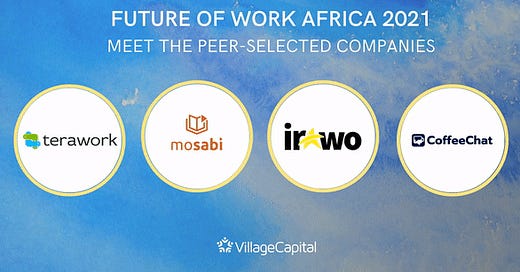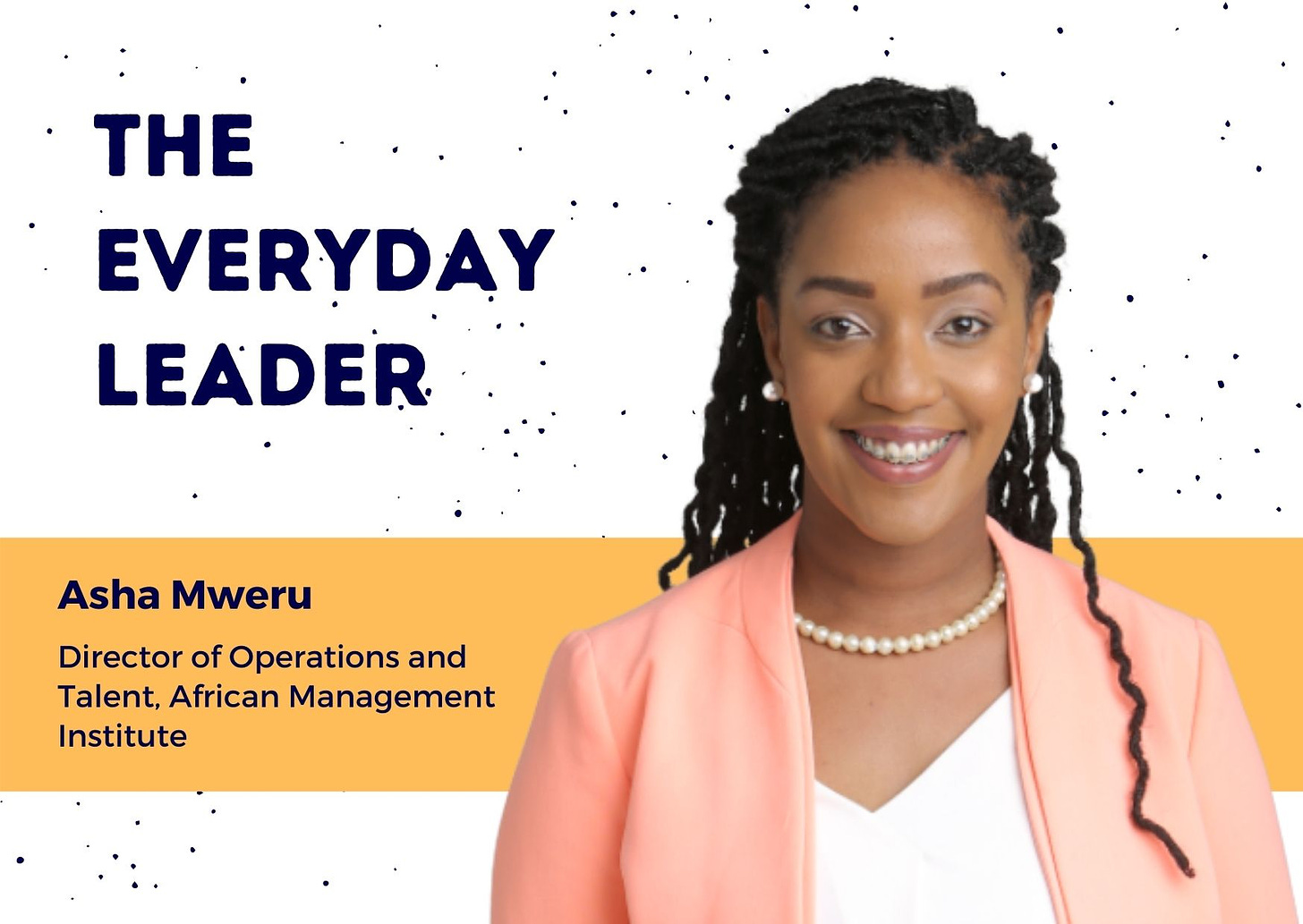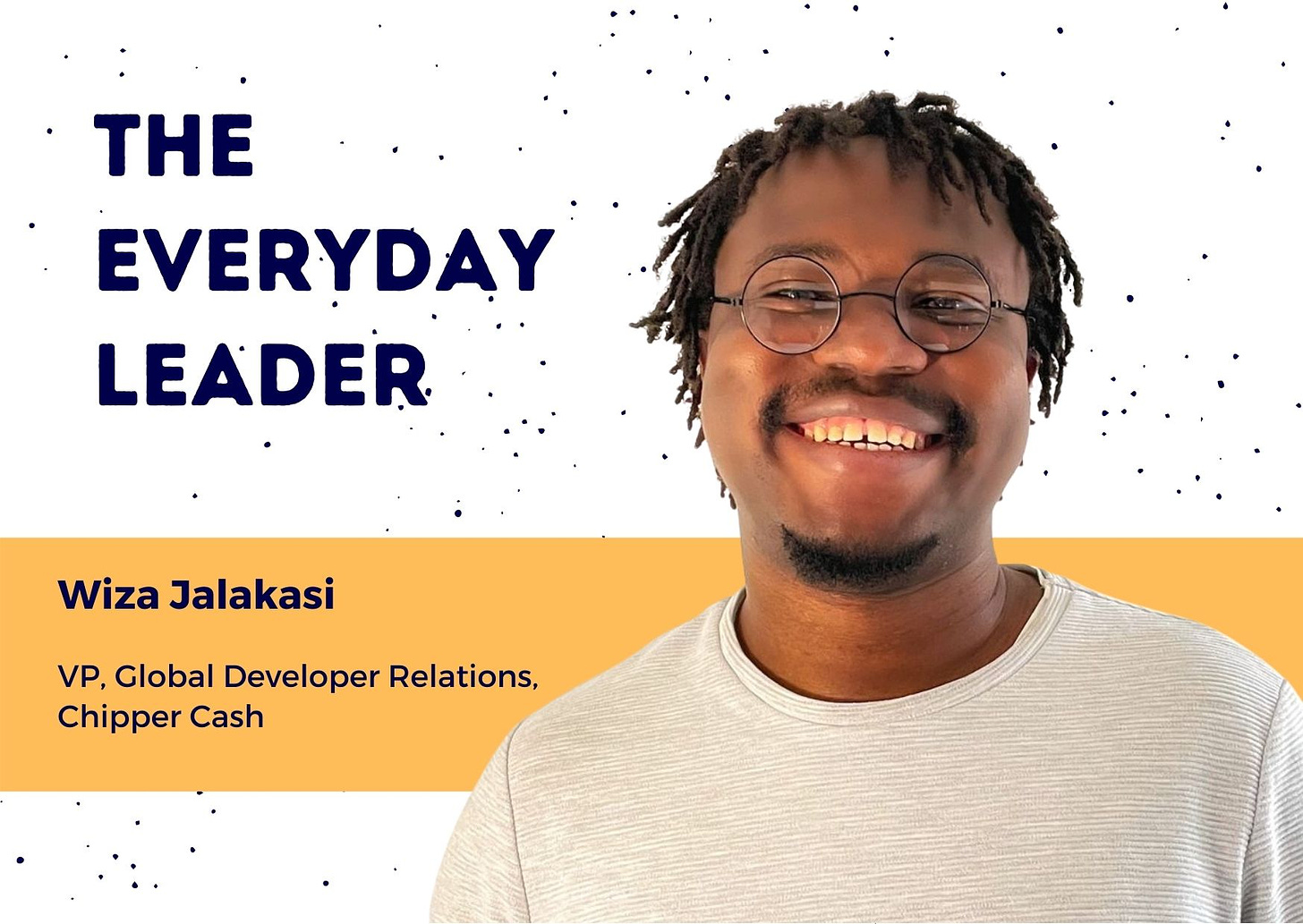Hi everyone, here’s what we have for you today:
CoffeeChat was peer-selected as one of four winners of the first Future of Work Africa accelerator program. The program, run by Village Capital and supported by the IFC and Moody’s, emphasized peer due diligence.
Sometimes it’s only years later that leadership lessons really sink in. In a new episode of The Everyday Leader, hear from Asha Mweru from African Management Institute on how she developed self-awareness of her own leadership style after seeing other leaders in action later on.
Don’t be afraid to share your point of view on where you think your industry is headed. Wiza Jalakasi from Chipper Cash shares on The Everyday Leader how his consistent commentary and intentionally thoughtful point of view on his blog and Twitter have opened doors for him over the years, including receiving a job offer over a Twitter DM that he accepted.
Read on for more details…
CoffeeChat peer-selected during accelerator program
CoffeeChat was one of four African startups to secure $20k each as part of a peer-selected investment, funded by the IFC and Moody’s. There was a strong emphasis on "peer due diligence" including many sessions grilling fellow participants about their business models, risks, and opportunities. The 4-month program culminated in ranking each other within our cohort based on progress made towards the Abaca investor readiness criteria, with the top-ranked participants receiving the final investments.
Combining creator and operator roles, seeing your own leadership challenges in others, and selecting a team-wide OKR tool
Asha has navigated a number of entrepreneurial organizations during her career so far. During our conversation she shared several important takeaways:
Pick your guiding north star(s) when making career moves: Over the years, Asha has identified two key elements of her ideal role - she sees herself as both a creator and an operator, and pursues career opportunities that provide space to do both. If you aren’t intentional in this way, you may end up in a role that doesn’t bring you enough joy over time.
Sometimes it’s only years later that leadership lessons really sink in: During and after transitions, it’s important to slow down to reflect on past leadership and career learnings. Yet it’s often only after you’ve moved on and seen other leaders in action when you can develop the self-awareness to understand the underlying reasons of your personal leadership and team challenges during past roles. Your ego and lack of perspective can get in the way of recognizing insights right in front of you.
Develop an easy-to-understand summary of your leadership role that other teams and new staff can easily grasp: Asha describes her role in two ways - as Director Talent & Operations, she tells other team members that “it’s my business to get in other people’s businesses” and “I work alongside managers to ensure everyone at AMI is thriving”. Because she is easily able to articulate her mindset, it provides a framework for others to engage and embrace her support.
Select a goal-tracking tool that provides enough organization-wide visibility and accountability, while being easy to use: Asha carefully researched a tool to help her company’s 80+ staff select an OKR tracking tool that allowed all levels of staff to see real-time progress against their quarterly goals without requiring extra reporting.
Getting the timing right during career transitions, managing pan-African scale-ups, and building a personal brand online
Here are a few highlights from the conversation with Wiza:
Navigating the journey from self-employed to employed doesn’t need to mean a loss of autonomy: In fact, for Wiza it presented one of the first opportunities to hire and manage others, and work across several countries. It pushed him to more intentionally build empathy and share the right information at the right time with others.
Hire team members that will help guide you through your next stage of growth, not the other way around: When Wiza hired a team to help Africa’s Talking expand from 6 countries to 20, he selected individuals that filled his experience and skills gaps, which made his job much easier.
Timing is crucial in making career transitions: Wiza shared that “I like to measure my growth through the rate of new mistakes that I’m making.” When he realized that he was getting too comfortable in a role after building out a team and operations structure, he made the decision to transition out. Sometimes it’s better to leave earlier, rather than later. But of course make sure your exit is graceful, with enough notice and a smooth handover plan to ensure their continued success without you.
Don’t be afraid to share your point of view on where you think your industry is headed: Wiza credits luck and good timing, but also his consistent commentary and intentionally thoughtful point of view on his blog and Twitter have opened doors for him over the years, including receiving a job offer over a Twitter DM that he accepted. And he says that he still has important new contacts reach out to him about articles he wrote many years ago.
Ultimately you can’t replace in-person, face-to-face engagement with your team, but tools can help make hybrid work more effective: Wiza describes how building a culture of consistent and clever use of loom, notion, and slack can help make hybrid work arrangements more seamless.
If you want to do something at scale, you need to build your managerial muscle: There’s a limit to how much one person can do on their own. At the beginning of his career, Wiza felt that he needed independence to fully achieve his creative vision without distractions, but through his experience, he has seen for himself that a great leader understands their own skill gaps and knows when to find the right people to support. For this reason, he is actively investing his energy into being a better manager.





